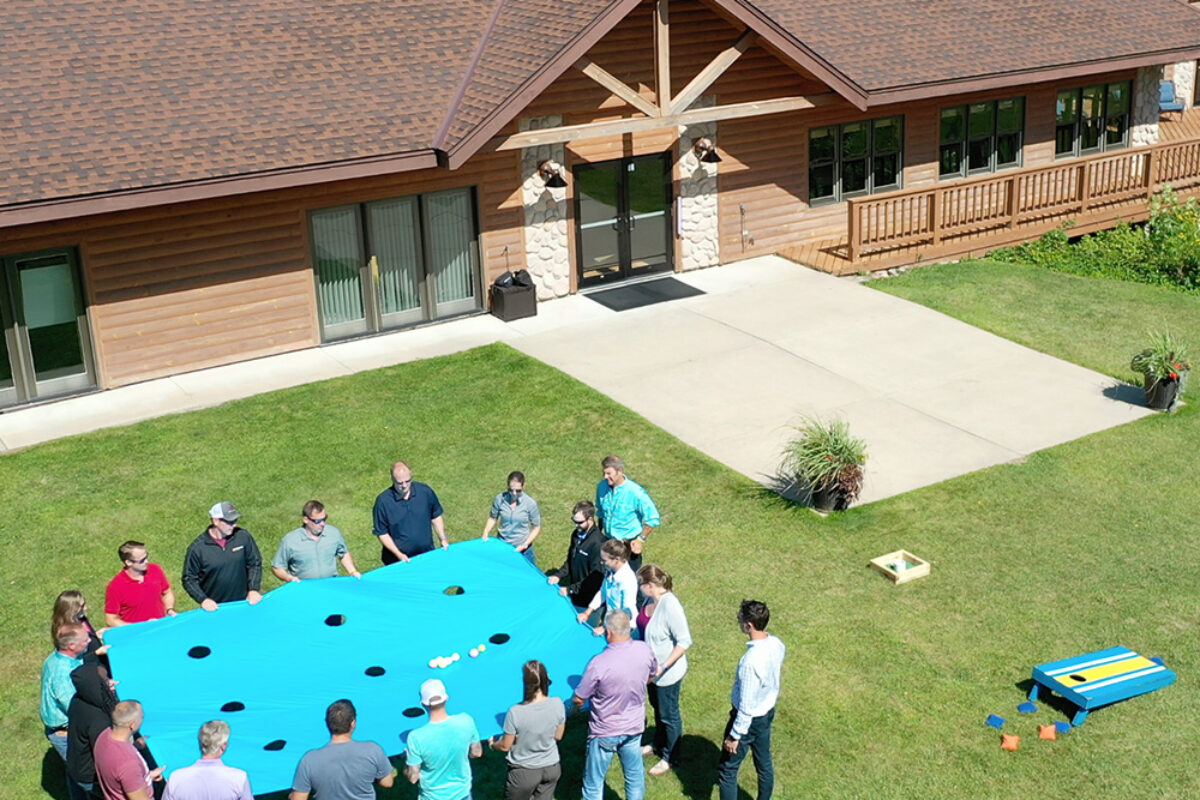Whether you’re planning a company retreat for a small business of 20 people or a full-scale corporate retreat for over 100, you need to find a location that is right for your team, business, and goals. Do you go to a local event center? Do you head off to a retreat location that’s out of town? Do you go all out and plan a company retreat on an island hundreds of miles off the coast?
Maybe we got a bit carried away with that last one, but the point still stands: you need to find the right location for your retreat. The better the place, the better the outcome, and choosing the right place is all about what you are looking to accomplish.
Find out what you should be looking for in your next company retreat location.
Diversified Spaces
Having space is one thing. Having useful space is quite another. You want to make sure that there is not only enough space to physically fit your team (let’s not have standing room only), but that the space you have is conducive to what you want to accomplish. This is where diversified meeting spaces come into play. If you want a complete retreat experience, look for some of the following types of spaces:
- Large conference spaces that can fit your entire team at once
- Smaller meeting spaces for breakouts and focus sessions
- Room accommodations (where will your team be staying? Will every person have their own room?)
- Social spaces for eating, meeting, and team bonding
- Outdoor spaces (no one wants to spend an entire weekend cooped up indoors)
- Recreational spaces to play games, set up team-building activities, and get some much-needed R&R.
- Spaces that are equipped with the technology and tools you need to complete specific tasks
Long story short: you want spaces to meet, eat, play, bond, and work through all the problems you came here to solve. Look for a location that has a diversified list of spaces. A single conference room or event center just isn’t going to cut it.
Something to Do (Besides Work)
Yes, you’re going on a retreat to focus on accomplishing a specific goal. You’re here to work, first and foremost, but that shouldn’t be your only focus for an entire weekend. One of the most beneficial components of a company retreat is the bond that is formed between the people who attend. Whether your team members are competing in games, taking on team building challenges that have them tackling complex problems, or simply sitting around a bonfire and getting to know one another better, there are so many benefits to doing something other than planning out your next fiscal year.
What are the benefits of this? Consider some of these team building statistics:
- A fully engaged workforce can deliver twice the revenue
- 75% of staff say teamwork and collaboration are crucial to corporate success
- 33% of employees believe fostering a collaborative culture leads to increased loyalty
- Organizations that put collaboration and communication as a top priority are 4.5 times less likely to lose their best employees
The lesson: build a company retreat that goes well beyond simple company planning, then choose a place that can host a fun and engaging retreat throughout the entire stay.
The Right Scenery to Set the Stage
The power of nature is scientifically backed by a lot of research. Nature can make people more creative, more productive, and happier and healthier. What kind of scenery does your retreat location have? Can you get outside, get on a lake, go for a walk, or just sit on the sand on the beach? Is it serene? Is it secluded? The best types of retreat locations get your employees out of the norm, remove them from their day-to-day lives and schedules, and bring them to a place that is conducive to getting the most out of them, both creatively and in terms of productivity.
Retreat Facilitation Opportunities
Retreat facilitators don’t tell you what to think, how to run your business, or what defines success at your business. What they do help with is organizing your retreat, guiding the conversation, and keeping track of your outcomes. Retreat facilitators bring many benefits to the process, including:
- Expertise: they have years of experience with company retreats
- Objectivity: they are an outsider looking in at your business, which allows them to provide another point of view
- Engagement: they know how to get everyone in your company participating in the process, including how to resolve conflicts
- Time management: they know how to keep your team on task throughout the retreat
- Stress reduction: they take care of the small details, you focus on the big picture and your desired outcomes

